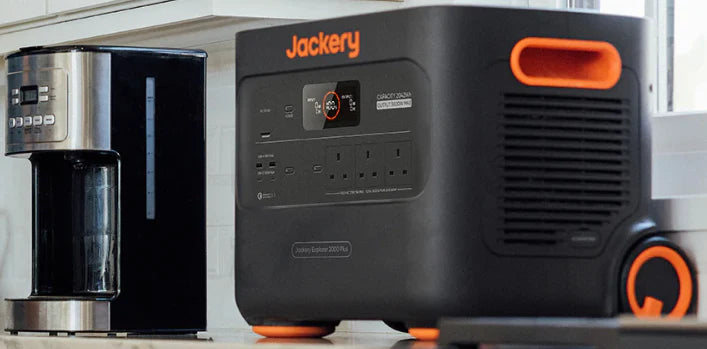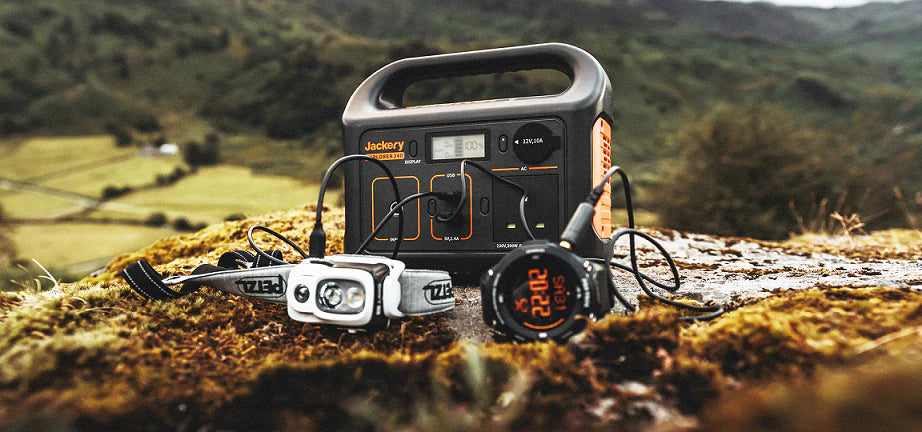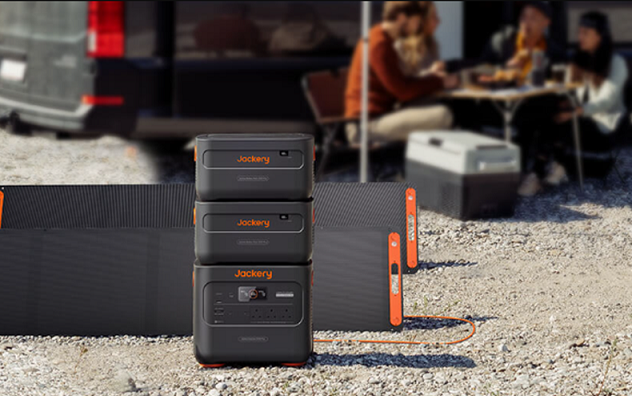Motivation Challenges of Running a Food Truck Business
Refrigerators and Freezers
Constant electricity is key to food trucks for optimal refrigeration. Refrigerators and freezers must operate within definite temperature ranges for food safety. E.g., refrigerators should maintain temperatures between 35°F and 38°F. Freezers should remain at or below 0°F. Any deviation can cause bacterial growth, food spoilage, and health hazards. Moreover, such appliances may have energy-efficient compressors that necessitate a stable power supply to function. Any fluctuation in power can cause these compressors to overwork for wear and tear and lowered equipment life.
The power requirements for these appliances can be ample. For example, deep freezers need 200-1200 watts, depending on size and energy efficiency. So, a reliable power source handles these loads. Food trucks may rely on small electric generators that provide steady power. Power management systems can also regulate the power supply so the refrigeration units receive a balanced electricity flow. It preserves the food quality and complies with health/safety regulations.
Cooking Utensils (Grills, Fryers, Ovens)
Cooking utensils in a food truck, including grills, fryers, and ovens, require nonstop and sizeable power to operate. An electric grill can consume between 1,000 to 1,500 watts. Electric stoves and ovens can require from 1,000 to 5,000 watts. Any pause in power can disrupt the cooking process, causing erratic food quality and customer dissatisfaction. Also, the heating elements within appliances must keep a stable temperature to cook food evenly with an unfailing power supply.
Besides, the cooking appliances may feature electronic controls for temperature regulation and cooking timers. It requires a steady power source to function. Voltage fluctuations can prompt the malfunctioning of these controls for overheating or underheating food. Food trucks may use high-efficiency electric generators or battery systems for a reliable power supply. They handle the high power demands of cooking appliances, incorporating surge protectors and voltage regulators for stability. It ensures the cooking process is uninterrupted for preparing high-quality food.
Food Preparation Equipment (Blenders, Mixers, Slicers)
Food preparation equipment like blenders, mixers, and slicers also demand an unceasing power supply. For example, blenders for preparing sauces, batters, and doughs might require 300 to 1,500 watts of power. Their precision depends on a regular power flow. Any fluctuation can result in uneven blending, mixing, or slicing, which can affect the texture and quality of the food prepared.
Contemporary food preparation equipment may include digital and safety mechanisms that rely on incessant power. It guarantees that the equipment operates within safe parameters to avert accidents and keep food quality. E.g., digital mixers may include speed controls and timers that need a stable power supply to function. So, food trucks might invest in quality electric generators with inverters that provide clean and unchanging electricity. Some trucks employ backup battery systems so that critical food preparation processes are not disrupted in case of generator failure.
Lighting and Ventilation Requirements
Adequate lighting and ventilation are indispensable for food trucks and need nonstop electricity. Lighting is necessary for visibility during food preparation, safety, and compliance with health regulations. Energy-efficient LED lighting systems in food trucks require a steady power supply for bright, clear illumination. They may consume between 10 to 14 watts per fixture. Yet, multiple fixtures can add up and demand a reliable power source so all truck areas are well-lit.
Ventilation systems are also key. They exclude smoke, steam, and odours from cooking. Such systems may have exhaust fans and air filters needing unceasing power. Exhaust fans can consume around 40 to 200 watts each, and multiple fans might be required. Constant operation of these fans upholds air quality inside the truck and thwarts the buildup of grease and smoke, which can pose fire hazards. Ventilation systems may also include sensors and electronic controls that require a stable power supply to monitor air quality and adjust fan speeds for the best ventilation at all times.
Point of Sale (POS) and Payment Processing Equipment
POS systems and payment processing equipment are key to a food truck's operations and require nonstop electricity. They handle transactions, manage inventory, and generate sales reports depending on a stable power supply. A typical POS system might include a touchscreen monitor, cash drawer, receipt printer, and card reader and consume around 100 to 400 watts. Any power interruption can cause transaction errors, loss of sales data, and customer dissatisfaction.
What is more, POS systems may rely on cloud-based software and need an uninterrupted internet connection. It is powered by routers and modems that need a stable power supply. Plus, payment processing equipment, including card readers and mobile payment devices, require power to maintain secure data transmission. Food trucks may use electric generators alongside their primary power sources for reliability. It provides backup power during outages, so critical POS and payment processing functions continue for performance and customer satisfaction.
Limitations of Relying Solely on Generator or Grid Power
Noise and Air Pollution Issues
Firstly, food trucks in the UK, relying solely on electric generators, face noise pollution challenges. Diesel and petrol generators emit a high decibel level beyond 75 dB, which can harm operators and customers. Long exposure can cause hearing damage and anxiety. Moreover, generators are a source of air pollution. They emit NOx, PM, and VOCs, all harmful pollutants. NOx prompts ground-level ozone formation, which can aggravate asthma. PM can penetrate into the lungs and enter the bloodstream for cardiovascular and respiratory issues. Electric generators can lead to urban air pollution in densely populated areas where food trucks frequently operate. Furthermore, regulatory bodies, including the EPA, have guidelines on permissible emission levels. Non-compliance can result in cumbersome fines and disruptions for food truck owners.
Fuel Costs and Storage Issues
The economic and logistical burden of fuel costs and storage is a limitation for food trucks using generators. Diesel and petrol prices fluctuate. They are influenced by geopolitical factors, which can cause unpredictable and high operational costs. Likewise, generators consume fuel at varying rates depending on load. A typical 5 kW generator might consume around 0.3 litres of diesel per kW of electricity. It means considerable daily fuel needs. Storing this fuel introduces added challenges. Regulations stipulate storage requirements to preclude accidents and environmental contamination. All fuel storage may have secondary containment to prevent leaks, which adds to the cost and complexity of compliance. Improper storage poses a fire hazard and risks soil and water contamination while attracting penalties and cleanup costs. Besides, space within a food truck is limited. Dedicating portions to fuel storage can limit performance and inventory capacity.
Dependence on the External Power Supply
Thirdly, food trucks reliant on grid power face dependency issues. Access to grid power is not always guaranteed in remote or temporary locations with food trucks. Temporary electrical connections can be unreliable. They are subject to outages and voltage fluctuations that can damage sensitive kitchen equipment. The infrastructure to connect to the grid may not be present or require investment and bureaucratic navigation. Tapping into the local power supply may involve negotiating with property owners and utility companies in urban settings. Further, reliance on grid power limits the mobility of food trucks, which is a core aspect of their business model. Food trucks operate in varied locations to address customer demands and events. Yet, dependence on the grid ties them to specific spots. In emergencies or peak events, it can result in lost business opportunities. Lastly, the cost of electricity itself can fluctuate, impacting profitability.
How Jackery's Solar Generator Provides Stable and Efficient Power
Benefits of Solar Energy for Food Truck Businesses
Solar energy offers many advantages for food truck businesses in the UK. First, using a solar electric generator provides a continuous supply of clean, renewable energy to preserve operations without stopping. It cuts dependence on fossil fuels and grid power while lowering environmental impact and working costs. Apart from that, solar energy helps food truck owners save on energy expenses for better allocation of funds towards other business needs. As an added benefit, it positions the business as eco-friendly to attract customers, highlighting sustainability.
Jackery Solar Generator 300 Plus
Jackery Solar Generator 300 Plus is admirable for food trucks demanding a dependable power source. Its features include a 288Wh capacity and a 300W (600W surge peak) AC Pure Sine Wave Inverter for stable appliance power. Notably, it supports fast charging with wall and solar options while reaching total capacity in 2 hours via wall charging. The long-lasting LFP battery provides 1500 cycles to 80%+ capacity, which renders it durable. Its compressed, lightweight design allows easy carrying and storage to fit into the narrow space of a food truck.
Jackery Solar Generator 2000 Plus
For larger food truck operations, the Jackery Solar Generator 2000 Plus suits due to its high capacity and features. With a 2042.8Wh capacity and expandable up to 12 kWh with supplementary battery packs, it can power multiple high-wattage devices instantaneously. This solar electric generator can support heavy-duty equipment like portable air conditioners, microwaves, and electric ovens, thanks to its 3000W output with a 6000W surge peak. Its sturdy structure outfits outdoor use for steadfast performance across weather conditions and locations.
Advantages of Jackery Solar Generators over Traditional Power Sources
Jackery solar electric generators offer perks over traditional power sources. The silent generators exclude noise pollution and provide a pleasant customer experience. Besides, with zero emissions, the generators support eco-friendliness. It matches with environmental regulations and enhances the business's green credentials. Also, their portability ensembles many food truck locations and events, so power needs are met regardless of the setting. Combined with their technical specs, they are optimal for food truck operators looking for efficient power solutions.
Jackery's Solar Generator in Your Food Truck Business
Assessing Your Food Truck's Power Requirements
To assess your food truck's power requirements, you must first calculate the wattage of each appliance and equipment you use. Let's suppose that your combined power requirement is 4700W. However, since not all devices run concurrently, you may consider a simultaneous usage factor of around 60-80% of the total. It results in a demand for roughly 2800-3800W. Thus, a Jackery solar electric generator, including the Jackery Solar Generator 2000 Plus with a 2042.8Wh capacity and 3000W output, can satisfy your needs while considering peak and continuous power demands. For peak efficiency, guarantee that your solar electric generator includes MPPT technology. It optimizes the solar panels' output and keeps high efficiency even under erratic weather conditions.
Integrated Solar Panels for Optimal Charging and Efficiency
Selecting the right solar panels and adjusting their placement exploits your food truck's solar electric generator efficiency. E.g., the Jackery SolarSaga 200W Solar Panels offer a high solar conversion efficiency of up to 25% in capturing concentrated sunlight. Given the space constraints on a food truck, consider installing multiple panels in a series for charging capabilities. Six panels could charge the Jackery Solar Generator 2000 Plus in 2 hours under ideal conditions. Mount the panels using adjustable tilt mounts to support the sun's angle throughout the day for maximum exposure. In the UK, positioning panels at around 35-40 degrees south-facing angles will augment efficiency during winter while adjusting to near horizontal in summer to capture the long, lower-angle sunlight. Moreover, a smart solar charge controller can prevent overcharging and increase battery life by regulating the input power according to current solar intensity and battery status.

In Summary
Implementing a Jackery solar electric generator into your food truck company improves productivity and lowers dependence on conventional power sources. Jackery's solar generators use high-efficiency monocrystalline solar panels to generate electricity even in low light. It helps food trucks that operate in various climates and locales. MPPT technology optimizes energy gathering and cuts recharging times in the generators for home. With its high energy density and broadened use, lithium-ion battery storage delivers reliable power with little maintenance. Essential items like refrigerators, freezers, and cookware need this. Jackery manufactures durable, efficient, silent electric generators that exceed tight performance criteria. Thus, food truck owners should integrate Jackery's solar generators for trustworthy backup power, company continuity, and cost savings.
You might also want to read...
Finding the Best Solar Battery Chargers in the UK: A Jackery Review
The Ultimate Guide to Choosing a Laptop Power Bank for Remote Work
How Can Solar Powered Generator Help to Run Your Food Truck Business?


































































































